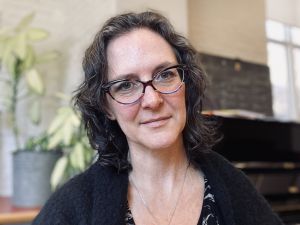Researchers from across the globe will be at Brock this week to explore nutritional practices of the past in hopes of impacting health policies of the future.
Using a conference grant from the Canadian government, Elizabeth Neswald, associate professor of History, has organized a symposium for this Friday and Saturday focusing on the history and politics of nutritional practices.
The two-day event, which includes lead researchers from the United States, Germany, Scotland and two researchers from Brock, will be a chance for colleagues from around the world to swap notes on their research. It will also include invited guests from today’s public health schools, and a chance to ask critical questions about current public health policy.
“If you look at the history of nutrition, you can contribute to the understanding of the practices of today,” said Neswald, Brock’s first professor of the history of science and technology. “Some assumptions are still the same. We need to take a step back and critically examine how these ideas developed.”
Neswald’s former colleague and co-organizer, David Smith, is an international expert on the history of nutrition. He will travel from the University of Aberdeen in Scotland to talk about his research on the history of nutrition and nutrition and food policy in 20th-century Britain. Smith researches historical debates on protein and calorie needs as wells as the impact of class and gender on nutrition.
Other speakers include Brock’s own Ian Ritchie, associate professor of Physical Education and Kinesiology. Ritchie will speak on nutritional supplementation in athletics in the late 19th and early 20th centuries. Ulrike Thoms, from Charité Medical School in Berlin, will talk about the evolution of food given to soldiers in Germany between 1850 and 1960. Suzanne Junod, from the United States Food and Drug Administration, who will speak on the origins of U.S. mandatory food labelling.
An edited volume of the symposium will be produced in the near future.
Neswald, who came to Brock in 2006, currently holds a five-year grant from CIHR to investigate the history of energetic theories of nutrition in late 19th- and early 20th-century Germany and the United States, and the translation of these physiological theories into nutritional practices.









